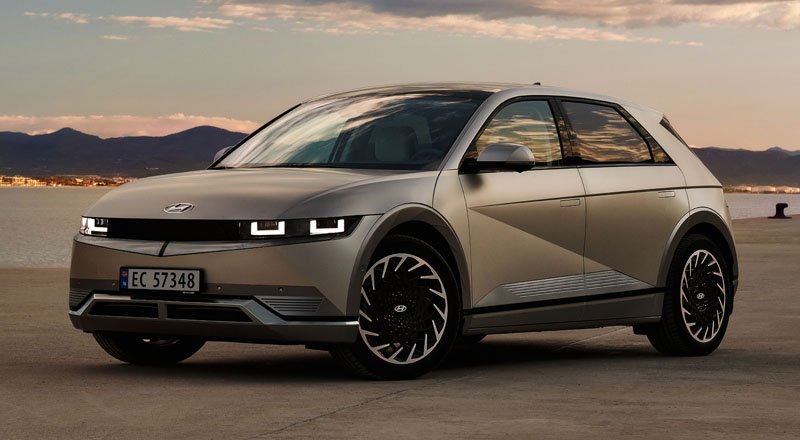According to the National Association for Sustainable Mobility (Andemos), 28,164 renewable energy vehicles have been sold so far in 2024 (ending in August).
During the same period in 2023, 19,226 people were registered, representing a 45% increase, which is a significant increase in the adoption of the new form of mobility that Astara is promoting in the country.
September 9 is World Electric Vehicle Day, a date that aims to open bridges for alliances between companies, governments and citizens to talk about an issue that concerns us all: sustainable mobility.
These are times full of hope and challenges to improve the quality of life of urban residents in Colombia and around the world; the WHO has even warned about the impact of air pollution on health; the organization’s data shows an alarming figure: 99% of the world’s population breathes unhealthy air, and Colombia is not far from the problem. According to the Ministry of Environment and Sustainable Development, vehicles are responsible for 78% of greenhouse gas emissions and 80% of air pollutants in the country.
Faced with this bleak panorama, sustainable mobility alternatives are emerging, promoted by companies that promote development but are aware of the enormous responsibility they bear towards the planet. This is the case with Astara, as its corporate policy goes beyond the regulations in force in their countries and aims to bet on a better environment for everyone through innovation and the use of new technologies.
Such companies strive to open up new ways of developing business.”We reaffirm our commitment and our role in this sustainable mobility revolution. Together, we have made important changes to promote more responsible habits in the mobility industry.– explained Astara CEO Jorge Navea.
While many companies see it as a risky bet, the results confirm that sustainability is a great tool for growth. Its more than 40 brands are spread across the globe, showing business growth of 10%. This commitment by Astara extends to the 19 countries in which it operates.
In Colombia, there is a major commitment to supporting this corporate growth. According to Ana María Orozco, Advisor to the Ministry of Mines and Energy, public efforts add to the support of sustainable mobility in the country, removing the burden on companies and users of electric vehicles, making the offer in this market more attractive.We aim to ensure communication between electric vehicles and the grid, and that each component can exchange information within this system. This creates a communication standard, so that no matter who makes the component, it is possible to connect without any problems, creating a common interface.– said the official.
On the other hand, there is a necessary vision from the side of civil oversight, support and analysis of each of these bets, consolidation of these efforts as an alliance between private companies, government and citizens. “There are interesting innovations happening in companies, some of them working with electric vehicles, but the main challenge is how to make them more cost effective and change the culture and mindset of people so that they clearly see the path they can follow to make a real difference.– said Fernando Rojas, an analyst on sustainable mobility issues.
It is a fact that interest in buying electric vehicles in Colombia has increased significantly, driven by a combination of environmental concerns, technological advances and changes in consumer mentality. From 2019 – a year in which 403 vehicles powered by renewable energy were sold – to today, sales have increased significantly. According to the National Association for Sustainable Mobility (Andemos), in the first quarter of 2024 alone, 28,164 units of vehicles powered by renewable energy sources.
Astara and the New Sustainable Era of Corporate Initiatives
Promoting sustainable initiatives within companies can be a challenge that will bring benefits and recognition in the medium and long term. Many organizations are seeking to promote an environmental culture by implementing renewable energy sources used in their facilities.
In the case of Astara, a company recognized worldwide for its leading sustainability practices, it continues to focus on the adoption of renewable energy sources used in its operations. This transition has been gradual, with the stated goal of reaching 100% by 2027.
In 2023, this global company committed to achieving carbon neutrality in its operations by 2027, electrifying 90% of its fleet and using 100% renewable energy in its facilities. In addition, they are developing a carbon offset plan, dedicating 80% to CO2e reduction projects.
“We are committed to transforming mobility, leading to a transition to cleaner and more efficient mobility. We are ushering in a new era of transport that protects our planet and benefits future generations, ensuring equality.», – says Andres Aguirre, regional manager of Astara Colombia. In Colombia, it is the exclusive representative of Dodge, Fiat, Hyundai, Jeep, JMC, Opel, Peugeot, RAM and Volvo. From this range, the models zero are Hyundai (Ioniq 5), JMC (JMEV2, JMEV3 and GSE), Opel (Rocks-e), Peugeot (E-2008) and Volvo (C-40, EX-30, XC-40). emissions and a look at electrification.
And in this sense, the difficult task of achieving results in the strategies for the transition to fair mobility on our planet requires a fairer society, and this is where women’s leadership is vital. An example of this is the distribution of shares of companies such as Astara, which in 2023 managed to achieve 37% of women’s representation worldwide, which encouraged many companies to continue on this path to create opportunities for all, and this direction remains relevant in their activities in the country.
Connected













